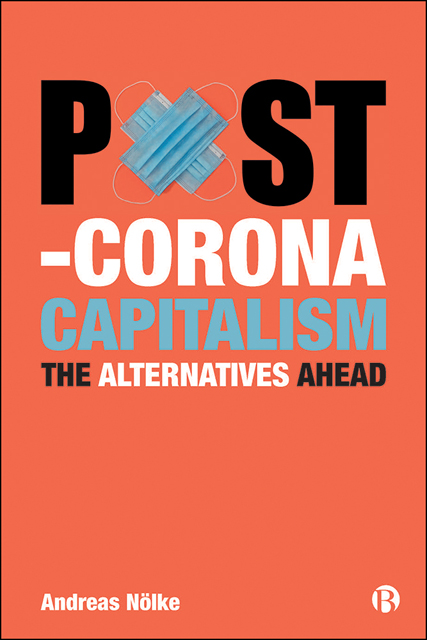Book contents
- Frontmatter
- Dedication
- Contents
- List of Abbreviations
- Acknowledgements
- Preface
- 1 Introduction: Confronting a Multidimensional Crisis of Capitalism
- Part I Capitalism and Society
- Part II Domestic Institutions of Capitalism on the Demand Side
- Part III Domestic Institutions of Capitalism on the Supply Side
- Part IV The International Institutions of Capitalism
- Part V Anthropocene Capitalism
- Part VI Geo-economic Shifts in Global Capitalism
- Part VII Ideologies in Contemporary Capitalism
- References
- Index
Part VII - Ideologies in Contemporary Capitalism
Published online by Cambridge University Press: 13 October 2022
- Frontmatter
- Dedication
- Contents
- List of Abbreviations
- Acknowledgements
- Preface
- 1 Introduction: Confronting a Multidimensional Crisis of Capitalism
- Part I Capitalism and Society
- Part II Domestic Institutions of Capitalism on the Demand Side
- Part III Domestic Institutions of Capitalism on the Supply Side
- Part IV The International Institutions of Capitalism
- Part V Anthropocene Capitalism
- Part VI Geo-economic Shifts in Global Capitalism
- Part VII Ideologies in Contemporary Capitalism
- References
- Index
Summary
The study of broadly encompassing ideas on the changing nature of capitalism is not part of Political Economy textbooks, neither in its Comparative, nor in its International variety (although the latter always contain applications of theories from International Relations, such as Realism, Liberalism and Marxism). Still, these ideologies on the normatively preferred nature of capitalism allow us to create some order in the long list of individual observations assembled in the book, as an ‘early conclusion’. Three broad juxtapositions seem particularly useful to make sense of the changes triggered by the coronavirus crisis. The most obvious choice is between authoritarian and democratic capitalism – which model gains, which loses (Chapter 30)? Some three decades ago, most people shared the assumption that (successful) capitalism can only go together with democracy, but the rise of China and authoritarian tendencies in previously capitalist-democratic countries have cast this assumption into doubt. Moreover, a historical perspective demonstrates that capitalist systems not only differ with regard to their system of government, but also with regard to more liberal and more organized systems of capitalism. Again, the question is how does the coronavirus crisis affect these tendencies (Chapter 31)? During the last decades, finally, the rise of populism has pointed to another increasingly important juxtaposition in contemporary capitalism; namely, the one between communitarians and cosmopolitans. Here, the focus is not on the nature of the domestic system of government, but on the degree of openness to outside influences, with communitarians sceptical and cosmopolitans open. Does the pandemic lead to more international openness or rather to closures (Chapter 32)?
- Type
- Chapter
- Information
- Post-Corona CapitalismThe Alternatives Ahead, pp. 187 - 188Publisher: Bristol University PressPrint publication year: 2022



